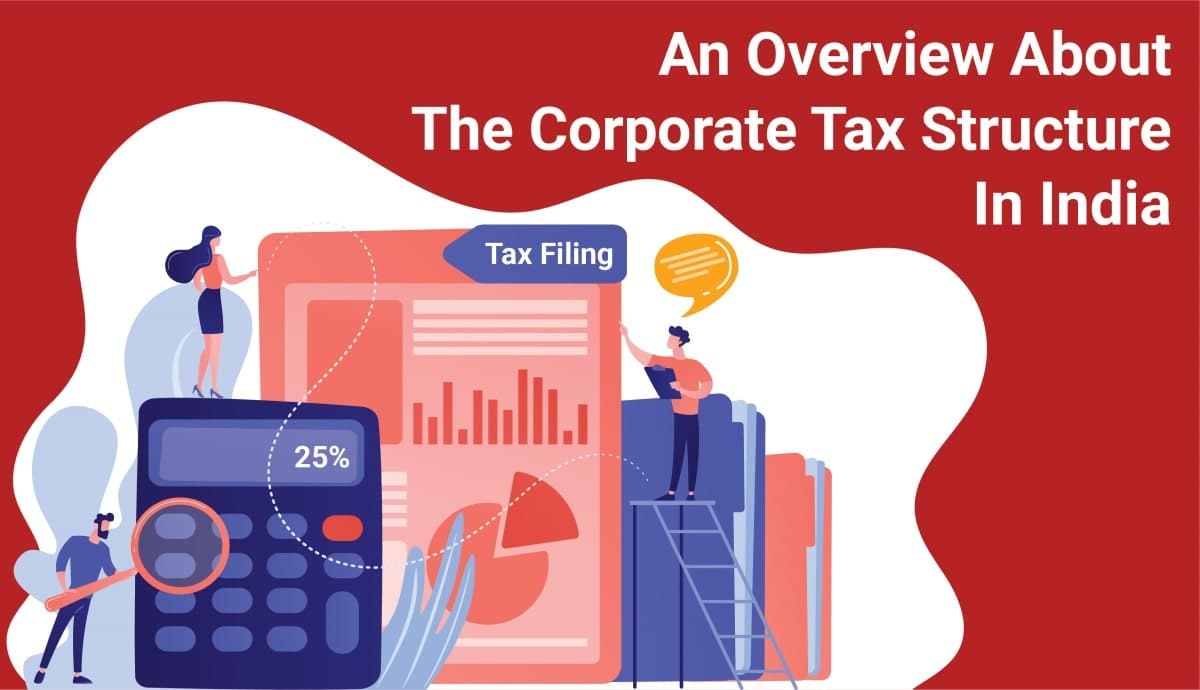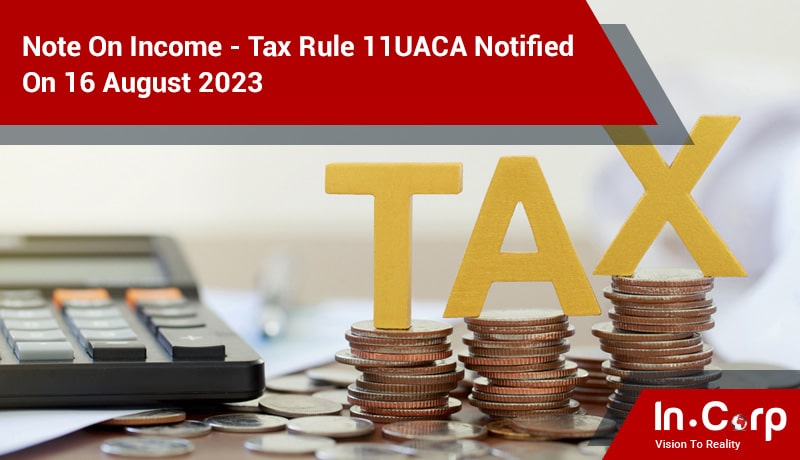This article discusses India’s corporate tax structure, tax rates, important deadlines, and business compliance requirements that you should be aware of to help you get a clearer picture of registering an Indian company
As tax is such a large percentage of any government’s revenue, India’s taxation system has been divided into two parts:
- Direct tax – This tax is imposed upon a person on his income or profits rather than on transaction tax. The burden to pay direct tax cannot be shifted. Ex. Income Tax.
- Indirect tax – This Tax is imposed upon transactions rather than on income or profits. The burden is always shifted from one person to another in the case of indirect tax. Ex. Goods and Service Tax (GST) and Customs Duty.
The Indian government collects taxes on its residents/entities to create revenue for projects designed to improve the country’s economy and raise its citizens’ living standards.
Hence, every person, be it an individual, a corporate, or a HUF, must get themselves registered with the tax authority by applying for a Permanent Account Number (PAN) (which is unique for every person), pay taxes, and file returns.
Table Of Contents
What is the Corporate Tax Structure in India?
What is considered as income for your organisation?
What are the Corporate Tax Rates in India?
What is the Tax filing timeframe?
What are the Business Compliance requirements in India?
Conclusion
Why Choose Incorp?
What Is The Corporate Tax Structure In India?
If you run a business in India, you must note that they can be classified into Domestic and Foreign Companies. Under the Income Tax Act, both domestic and Foreign companies must pay corporate tax.
They are explained in detail below:
- Domestic Company – They are registered under the Companies Act of India and include the company registered in another country but have control and management based entirely on India. It consists of both private and public companies. If you are a domestic company, then you will be taxed on your universal income.
- Foreign Company – Foreign companies, on the other hand, are not registered under the Indian Companies Act and have control and management outside of India. If you are a foreign corporation, then you are only taxed on income earned in India, generated or received in India.
What Is Considered As Income For Your Organisation?
There are four basic categories of revenue that your organisation can generate:
- Profits earned from running a business
- Capital gains
- Rental income
- Income from other sources like dividend, interest, royalties, etc
What Are The Corporate Tax Rates In India?
Here’s a detailed explanation to make you understand the corporate tax rates that apply to your business:
* Section 115BAA: Tax on the income of certain domestic corporations whose total income is estimated without specific deductions, set-off, or carry-forward of previous losses or additional depreciation.
** Section 115BAB: Income tax on new manufacturing domestic companies established or registered on or after October 1, 2019, and started manufacturing operations before March 31, 2023.
Domestic companies that pay tax under Sections 115BAA and 115BAB are exempt from the Minimum Alternate Tax(MAT).
The Minimum Alternate Tax is a tax imposed on profits as shown in books of accounts prepared in accordance with the law.
The surcharge is applied to the amount of income tax owed, not to the amount of income earned. In addition to income tax and surcharges, you will be charged a 4% health and education cess, regardless of your company’s status.
Related read: Corporate Tax And Compliance In India
What Is The Tax Filing Timeframe?
The Financial Year (F.Y.) in India is from April to March. Your books of accounts and returns have to be prepared accordingly. It is also known as the previous year under the Income Tax Act.
Corporates with a presence in India will have to file four things with the income tax authorities as the financial year approaches:
- Tax Audit Report u/s 44AB (Depending on Turnover Limits).
- Transfer Pricing Report u/s 92E (Based on Transactions with Associated Enterprises).
- Income Tax Return (Mandatory).
- TDS compliances (Mandatory).
Here’s the Tax filing timeframe that you need to be aware of:
(As a result of Covid-19, the above-mentioned deadlines have been extended for FY 2020-2021.)
Note: Tax audits are required of entities with a total revenue or gross receipts of more than Rs. 1 crore.
The threshold limit for corporations whose cash transactions are less than or equal to 5% of total income and total expense has been increased to Rs. 10 crores (based on the Union Budget of 2021).
What Are The Business Compliance Requirements In India?
Let’s go over the most important compliance requirements to be aware of while forming a corporation in India.
To conduct business in India, companies must apply for three things:
- Permanent Account Number (PAN)
- Tax Deduction Account Number
- GST registration number
Use our free GST calculator to determine your tax liability
Note: If your corporation is newly formed, the Ministry of Corporate Affairs will issue you a PAN and TAN number on the day of incorporation.
Conclusion
India has one of the lowest corporation tax rates in the world. The procedure of incorporating and obtaining basic registration numbers in the area of Direct and Indirect Taxes has grown simpler and faster as a result of the introduction and constant up-gradation of technology, allowing firms to be set up quickly.
In addition, all compliances are now done entirely online. The necessity to visit departments has been virtually eliminated, resulting in a business-friendly environment.
Why Choose Incorp?
The Indian taxation system is a complicated system of laws, rules, and regulations that requires a thorough understanding of tax-related issues at the district, state, and central levels.
We at Incorp realise how complex corporate and regulatory tax compliances can be. We are happy to assist you in navigating them.
That’s where our expert team of tax professionals, with expertise in Indian corporate taxation laws, can help you. When you partner with us, you will have access to the following services:



